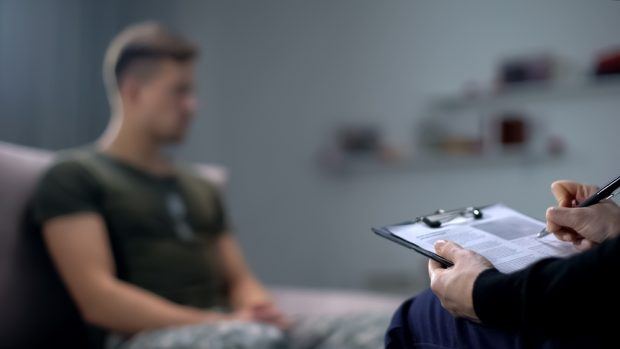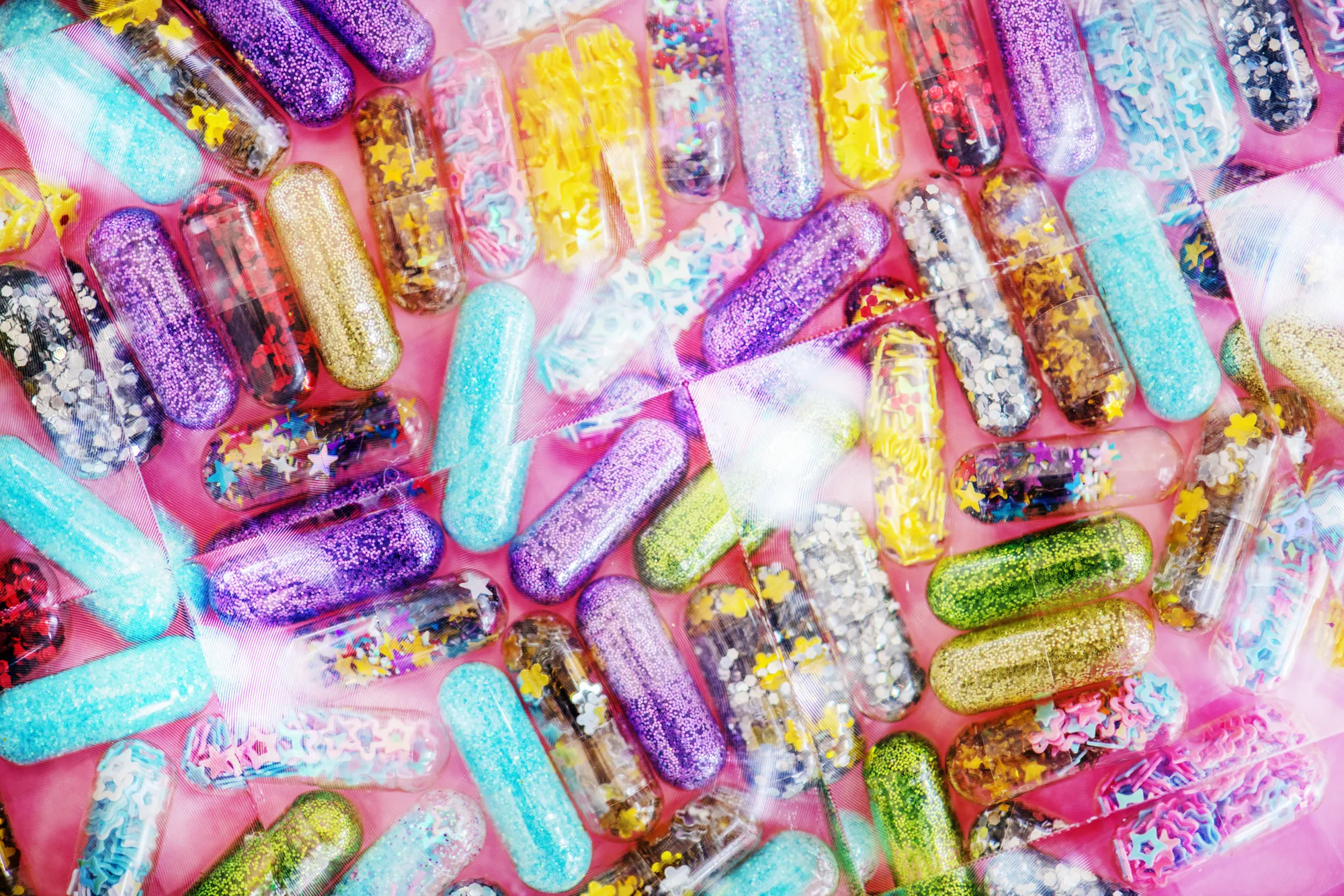This past February, Australia became the first nation to legalize the medical use of magic mushrooms and MDMA. Both magic mushrooms and MDMA, better known as ecstasy, E, and Molly, are used for recreational purposes, but in recent years they’ve made headlines for their potential impact on mental health, like cannabis’s journey.
While you’d expect ecstasy to only be taken at raves or clubs and people getting help for MDMA addiction, the drug has now found its way to treatment centers and therapy offices. This is due to its potential to treat and manage mental health conditions like post-traumatic stress disorder (PTSD).
How does MDMA affect the brain?
Norepinephrine, serotonin, and dopamine are neurotransmitters in the brain whose low levels have been linked to anxiety and depression. According to the National Institute on Drug Abuse (NIDA), MDMA enhances these transmitters. This increase in levels of these neurotransmitters may explain the mood-elevating effects people who take ecstasy experience. Additionally, the elevated levels of these neurotransmitters may explain why so many studies are examining MDMA’s effect on mental health conditions.
Ecstasy for mental health
MDMA for depression
- A 2012 study found that in a group of individuals with a predisposition to depression, the consumption of ecstasy reportedly led to a significant decrease in depressive symptoms.
- A report published last year in the Journal of Psychopharmacology found an association between MDMA and a lower risk of depression.
MDMA for anxiety
In 2019, Sarah Hogate Bacon, an athlete with a rare lung disease disorder, lymphangioleiomyomatosis, penned an article for The Washington Post. Bacon discussed how she turned to MDMA to help manage her anxious and depressed feelings about living with a condition that was destroying her lungs.
Following her use of MDMA, Bacon spoke about how she felt like she could breathe again,“It felt like oxygen was filling every cubic millimeter of my damaged lungs, turning them from antagonists to a supportive life force. And at that moment, the existential fear that always seemed to dog me dissipated.” she wrote.
“My takeaways from the MDMA-guided therapy were significant: I was no longer crippled by anxiety about the progression of my disease, or by the fear of potential treatment outcomes.”
While Bacon’s anecdotal experience with MDMA is not enough to advocate for the drug to be used to manage anxiety, there have been studies published suggesting that this could be the case.
A small 2020 study published in Scientific Reports found that MDMA reduced anxiety. Researchers are hoping to conduct larger-scale clinical trials to show the same effects.
MDMA for PTSD
In 2017, the US Food and Drug Administration granted breakthrough therapy designation for MDMA-Assisted Therapy for the treatment of post-traumatic stress disorder (PTSD).
While you may consider PTSD as a condition that only affects war veterans, PTSD affects about 3.5% of adults in the U.S. every year, with women, US Latinos, black, and Native Americans/Alaska Natives having higher rates of PTSD.
For a 2021 study, researchers recruited 91 PTSD sufferers, which included military veterans, first responders, and sexual assault victims, to either ingest MDMA or a placebo. At the end of the study, 67% of PTSD sufferers who had taken MDMA, as well as underwent psychotherapy, reportedly no longer experienced symptoms that met the criteria for a PTSD diagnosis.
Jennifer Mitchell, neuroscientist and lead author of the study, revealed that PTSD may be hard to treat as traumas become stuck. Yet, MDMA can help to manage this as, “things that had really crystallized become more flexible, and this gives you the chance to shake the tree and let all the nuts fall out.”

Motortion Films/Shutterstock
In a separate study, also published in 2021, researchers reviewed six different clinical trials that assessed the usefulness of MDMA-assisted psychotherapy versus psychotherapy alone. They concluded that while daily antidepressant therapy reduced PTSD by 6 to 14 points compared with the placebo, MDMA-assisted psychotherapy reduced scores by 22 points compared with those receiving psychotherapy with a placebo. Additionally, patients were twice as likely to no longer meet the criteria for PTSD diagnosis by the end of the trials.
MDMA-assisted therapy?
In addition to granting breakthrough therapy designations for MDMA-Assisted Therapy for the treatment of post-traumatic stress disorder (PTSD), the FDA also granted an expanded access program for MDMA therapy, which allows individuals with life-threatening, treatment-resistant PTSD to access MDMA therapy.
MDMA therapy involves a patient ingesting a measured dose of MDMA in a therapy room in the presence of a team of at least two therapists. The therapists will watch and guide the patient during their MDMA experience, and this will be followed by lucid talk therapy where the client will process any feelings and emotions that come up whilst they are on MDMA.
What are the risks of taking MDMA?
According to the NIDA, elevated levels of serotonin caused by MDMA can cause significant depletion that results in negative psychological aftereffects.
It also doesn’t help that recreational MDMA is often laced with other drugs, and this leads to a host of side effects that include addiction, anxiety, psychosis, heart palpitations, and an increased risk of overdose.
Is MDMA legal?
Per the Drug Enforcement Administration (DEA), MDMA is a Schedule I drug. This means that it has the highest potential for abuse and addiction, and this makes it very illegal, and it currently has no approved medical use.
Takeaway
Psychedelics may be trending for their mental health benefits, but that doesn’t mean that your therapist is going to be prescribing ecstasy anytime soon. Research may show the potential of MDMA for the treatment and management of PTSD, depression, and anxiety. However, more large-scale and peer-reviewed studies are needed to confirm these findings.
Additionally, the FDA granting breakthrough therapy designations for MDMA-Assisted Therapy does not change the DEA’s classification of MDMA as well as psilocybin, being Schedule I. drugs.
Unfortunately, the DEA’s stance on MDMA does make it hard for scientists to conduct research on the drug. But with growing interest, and with more researchers conducting trials into the mental health benefits of psychedelic drugs, it may not be long before your therapist does indeed prescribe ecstasy for your anxiety.
References
Jones GM, Nock MK. (2022). Lifetime use of MDMA/ecstasy and psilocybin is associated with reduced odds of major depressive episodes. Journal of Psychopharmacology, 36(1):57-65. doi:10.1177/02698811211066714
Majumder, I., White, J. M., & Irvine, R. J. (2012). Antidepressant-like effects of ecstasy in subjects with a predisposition to depression. Addictive behaviors, 37(10), 1189–1192. https://doi.org/10.1016/j.addbeh.2012.05.022
Smith, K.W., Sicignano, D.J., Hernandez, A.V. and White, C.M. (2022), MDMA-Assisted Psychotherapy for Treatment of Posttraumatic Stress Disorder: A Systematic Review With Meta-Analysis. The Journal of Clinical Pharmacology, 62: 463-471. https://doi.org/10.1002/jcph.1995
Wolfson, P.E., Andries, J., Feduccia, A.A. et al. (2020). MDMA-assisted psychotherapy for treatment of anxiety and other psychological distress related to life-threatening illnesses: a randomized pilot study. Sci Rep 10, 20442. https://doi.org/10.1038/s41598-020-75706-1



![women [longevity live]](https://longevitylive.com/wp-content/uploads/2020/01/photo-of-women-walking-down-the-street-1116984-100x100.jpg)










